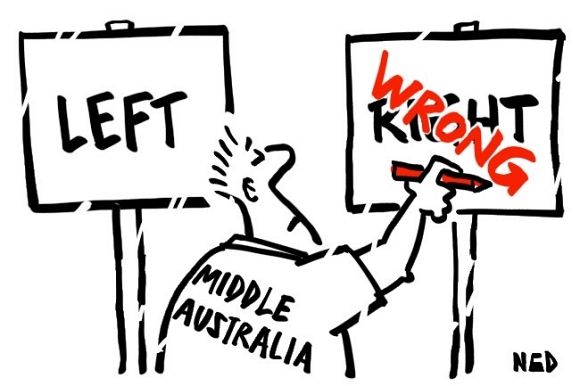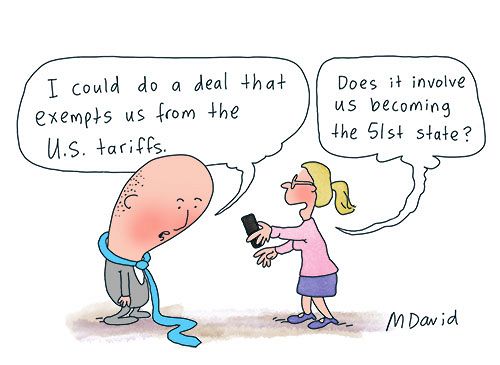The 2025 Federal Election was an indication that Australians have had enough of the rise in far-right ideologies spouted by extremists and politicians, writes Craig Hill.
IN RECENT YEARS, the rise of far-right extremism and neo-Nazi groups in Australia has drawn increasing concern from communities, academics and law enforcement.
Beneath its aggressive rhetoric and often-violent ideology lies not strength, but insecurity, manifested as hatred toward groups that challenge their sense of identity, status and entitlement.
They hate Asians because Asians have money and they don’t. Australia’s Far-Right often scapegoats Asian Australians and migrants for their perceived economic success.
Rather than seeing educational achievement, entrepreneurship and strong work ethics as positives, extremists frame these as threats.
The resentment stems from a fear of being “outperformed” in a merit-based society where traditional privilege no longer guarantees success.
What appears to be racial hatred is often deeply rooted in economic insecurity and a loss of perceived superiority.
They hate immigrants because of their work ethic. Anti-immigration sentiment is a cornerstone of the far-right narrative, but the underlying motive isn't just xenophobia — it's a bitter jealousy.
Migrants, many of whom take on hard, underpaid or unwanted jobs, embody the values of perseverance and resilience.
To the Far-Right, who often subscribe to entitlement politics, the work ethic of newcomers is a direct challenge to their own stagnation. Hard work from migrants exposes the laziness in the White victimhood narrative.
They hate Indigenous Australians because of their connection to country and cultural authority. Despite centuries of dispossession, many Indigenous Australians maintain deep cultural and spiritual ties to the land
For the Far-Right, whose identity is often built around White colonial history and land ownership, this unbroken Indigenous connection undermines their legitimacy.
Hatred toward First Nations peoples is not just racism: it's a deep discomfort with the historical truth and the call for justice that threatens the settler narrative.
They are shunned by women because of their insecurities. Among the Far-Right’s most toxic beliefs is its contempt for women; especially independent, educated or assertive ones.
Much of this misogyny is driven by rejection and isolation. Unable to form meaningful relationships, many far-right adherents blame women for their own social failings.
Online extremist spaces are filled with frustrated men who transform personal inadequacies into generalised hatred, feeding the rise of “incel” (involuntary celibate) culture and anti-feminist ideology.
They hate gays because of their own internal conflicts about their sexuality. Homophobia among neo-Nazis and the Far-Right is often more than cultural conservatism.
It is, for some, a projection of their own confusion or suppressed desires.
Research and anecdotal evidence suggest that some of the most aggressively homophobic individuals may be grappling with unacknowledged aspects of their own sexuality.
Rather than confront this complexity, they lash out at those who live openly and authentically.
Australian far-right extremism is not powered by strength. It is powered by fear. Fear of displacement, of inadequacy, of being irrelevant in a changing world.
Each target of their hate – Asians, immigrants, Indigenous people, women, LGBTQ+ Australians – represents something they feel they’ve lost or never had.
By unmasking the psychological roots of this hatred, society can better counter its influence with education, inclusion and solidarity.
It appears that many Australians have already realised this. The rejection of the LNP and other far-right political parties at the recent Federal Election shows that most Australians want stability, not hate and division.
Craig Hill is a Brisbane-based business owner, teacher, journalist and social justice campaigner. He is the Legalise Cannabis Party candidate for the Federal seat of Bonner in Brisbane. You can read more about Craig's campaign here.
 This work is licensed under a Creative Commons Attribution-NonCommercial-NoDerivs 3.0 Australia License
This work is licensed under a Creative Commons Attribution-NonCommercial-NoDerivs 3.0 Australia License
Support independent journalism Subscribe to IA.














